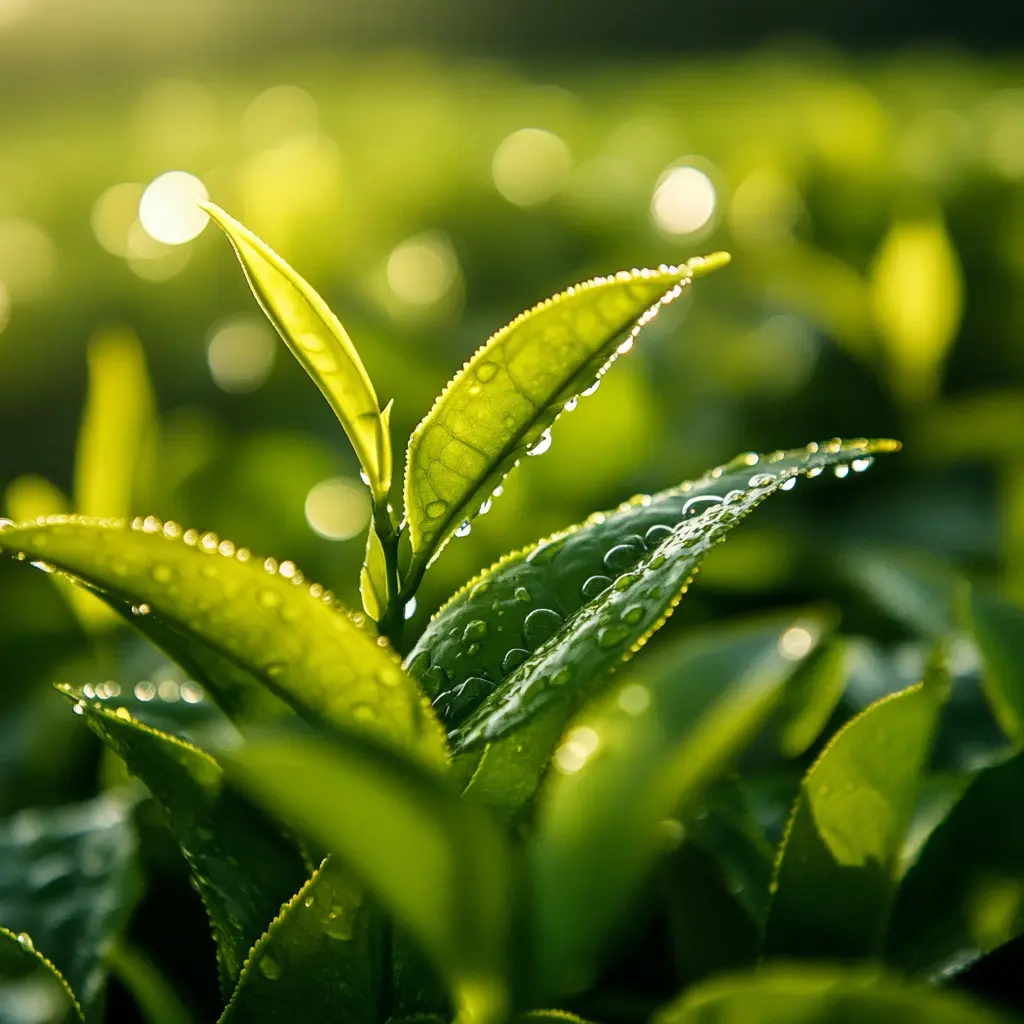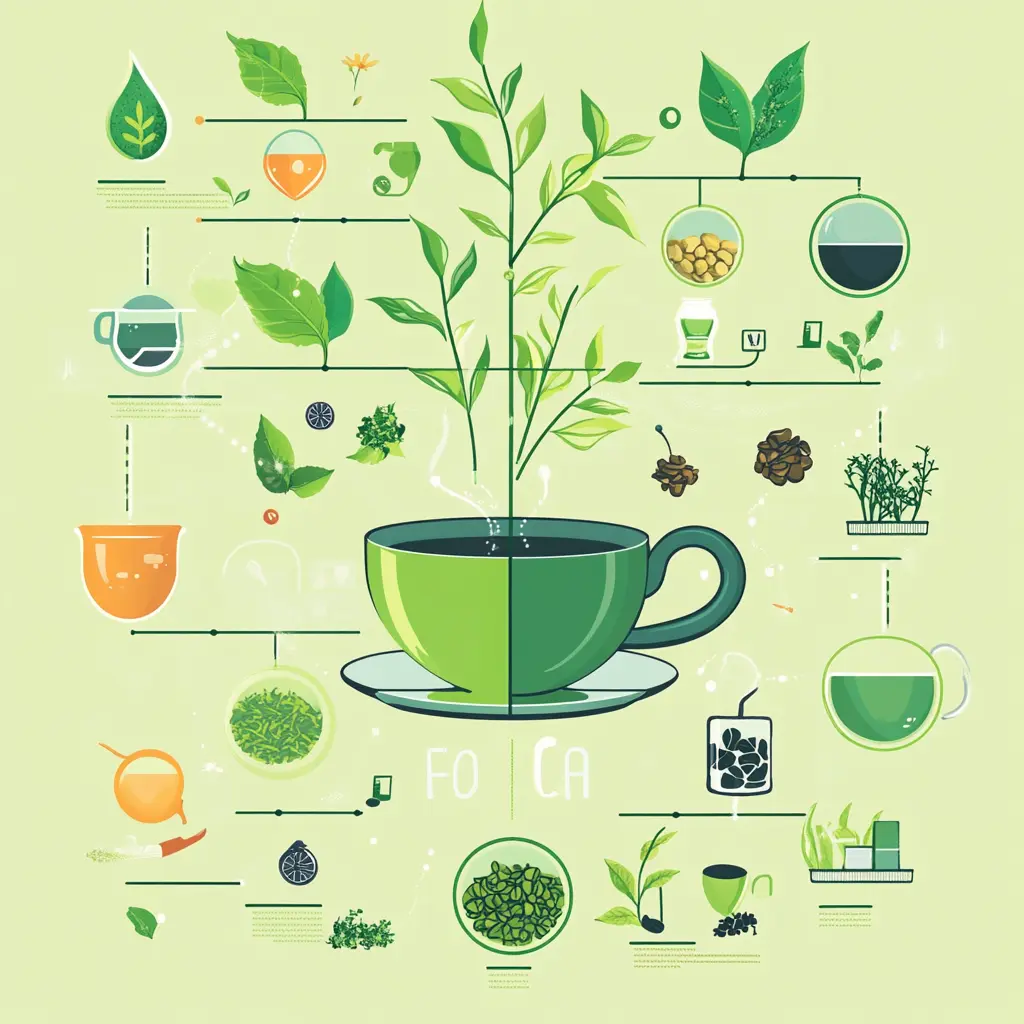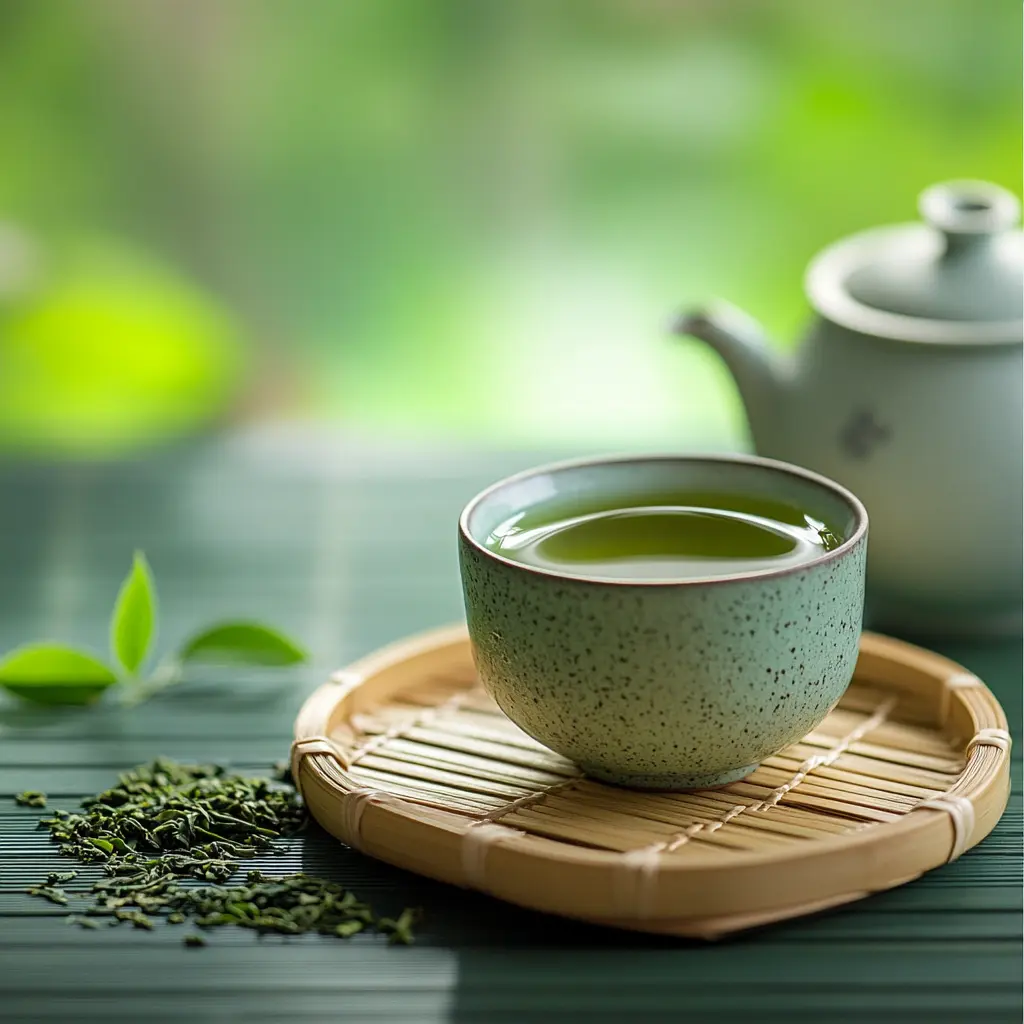Introduction
Green tea has stood the test of time, enchanting cultures around the globe with its myriad benefits and refreshing flavor. Whether it’s the allure of its ancient origins, the promise of health benefits backed by science, or simply its comforting warmth, green tea has become a staple in many lives. In this article, we’ll explore the fascinating journey of green tea, its nutritional treasures, and its numerous perks, while also diving into some key considerations to ensure you enjoy it safely. Let’s steep ourselves in this fascinating world.
Part 1: Introduction to Green Tea
1.1 Origin and History of Green Tea
Green tea traces its roots to ancient China, where legend has it that Emperor Shen Nong accidentally discovered it around 2737 BC when tea leaves fell into boiling water. Over centuries, green tea’s popularity spread across Asia, becoming an integral part of Japanese tea ceremonies and evolving into a global phenomenon. From emperors to monks, many revered this beverage for its invigorating properties and spiritual significance.
1.2 Types of Green Tea
Did you know that green tea isn’t just one kind? In fact, it boasts a variety of flavors and forms, each with its unique charm:
- Sencha: A classic Japanese tea, known for its grassy notes.
- Matcha: Finely powdered green tea, famous for its vibrant color and robust flavor.
- Dragon Well (Longjing): A Chinese favorite, offering a smooth, nutty taste.
- Gunpowder Tea: Rolled into tiny pellets, this type packs a strong punch when brewed.
Each variety owes its distinctive qualities to factors like climate, harvesting techniques, and preparation methods, making the green tea experience wonderfully diverse.

Part 2: Nutritional Profile of Green Tea
2.1 Key Components and Antioxidants
Green tea is a nutritional powerhouse, thanks to its rich content of bioactive compounds. Among its most remarkable components are catechins, particularly EGCG (Epigallocatechin gallate), which is celebrated for its potent antioxidant properties. These antioxidants combat free radicals, reducing oxidative stress and supporting overall health.
Besides catechins, green tea is loaded with polyphenols, which contribute to its anti-inflammatory and immune-boosting effects. The beverage also contains essential vitamins like Vitamin C and Vitamin B, as well as minerals like potassium and magnesium. These nutrients make every cup a treasure trove of health benefits.
2.2 Caffeine Content in Green Tea
Green tea offers a moderate dose of caffeine, making it a gentle pick-me-up without the jitters associated with stronger caffeinated drinks. The caffeine content in green tea varies by type and preparation, typically ranging from 20 to 50 mg per cup.
What makes green tea stand out is the presence of L-theanine, an amino acid that works synergistically with caffeine to enhance focus while promoting relaxation. This unique combination provides an alert yet calm state, often described as “relaxed energy.”

Part 3: Health Benefits of Green Tea
3.1 Green Tea and Cardiovascular Health
Green tea has been linked to better heart health due to its ability to lower LDL (bad cholesterol) and triglycerides. Its antioxidant properties help prevent the oxidation of LDL cholesterol, which is a significant factor in plaque buildup. Moreover, regular consumption of green tea may contribute to improved blood vessel function and reduced blood pressure, paving the way for a healthier cardiovascular system.
3.2 Green Tea for Weight Management
One of the most popular reasons people turn to green tea is its metabolism-boosting potential. Compounds like EGCG and caffeine work together to enhance thermogenesis, the process by which your body burns calories to produce heat. Green tea may also improve fat oxidation, making it a handy tool for those aiming to shed a few pounds when paired with a balanced diet and exercise.
3.3 Cancer Prevention
Green tea’s antioxidants, especially catechins, play a role in protecting cells from DNA damage caused by free radicals. While more research is needed, some studies suggest that green tea may lower the risk of certain cancers, such as breast, prostate, and colorectal cancers. These protective effects are attributed to the tea’s ability to inhibit tumor growth and reduce inflammation.
3.4 Cognitive Function and Brain Health
Sip on some green tea to give your brain a boost! The combination of caffeine and L-theanine enhances focus and alertness, while also promoting relaxation. Additionally, green tea may reduce the risk of neurodegenerative disorders like Alzheimer’s and Parkinson’s disease, thanks to its ability to protect brain cells and reduce oxidative damage.
3.5 Diabetes Management
Green tea has shown promise in improving insulin sensitivity and reducing blood sugar levels, making it beneficial for those managing type 2 diabetes. The polyphenols in green tea help regulate glucose metabolism and may even lower the risk of developing diabetes.
3.6 Skin Health
Want glowing skin? Green tea is your ally! Its anti-inflammatory and antioxidant properties combat oxidative stress, a key contributor to aging. Green tea may also help reduce acne by regulating sebum production and soothing irritated skin. Incorporating green tea into your skincare routine—whether through products or drinking it—can leave your skin healthier and more vibrant.
Part 4: Potential Side Effects and Considerations
While green tea is celebrated for its health benefits, it’s essential to understand the potential side effects and how to consume it safely. Moderation is key to enjoying green tea without encountering unwanted issues.
4.1 Caffeine Sensitivity and Sleep Disturbances
Although green tea contains less caffeine than coffee, its caffeine content can still impact those who are sensitive. Symptoms such as jitteriness, increased heart rate, and nervousness may occur if consumed in excess. Moreover, drinking green tea late in the day can disrupt sleep patterns, as caffeine may interfere with the body’s ability to relax and prepare for rest. If you’re caffeine-sensitive or aiming for better sleep, it’s best to enjoy green tea in the morning or early afternoon.
4.2 Impact on Iron Absorption
One downside to green tea’s high polyphenol content is its potential to inhibit the absorption of non-heme iron, the type found in plant-based foods. Drinking green tea alongside meals can reduce iron uptake, which may lead to iron deficiency over time, particularly in vegetarians and those with anemia. To mitigate this, consider drinking green tea between meals or pairing iron-rich foods with vitamin C-rich items to enhance absorption.
4.3 Liver Health Concerns
Although rare, excessive consumption of green tea or supplements containing concentrated green tea extracts has been linked to liver issues in some cases. High doses of catechins, while beneficial in moderation, can become toxic when consumed in large amounts. To protect your liver, stick to 3–4 cups of green tea per day and avoid over-relying on green tea supplements.
4.4 Interactions with Medications
Green tea can interact with certain medications, potentially diminishing their effectiveness or causing adverse effects. For example:
- Blood Thinners: Green tea’s vitamin K content can interfere with blood-thinning medications like warfarin.
- Stimulants: Combined with other stimulants, green tea may exacerbate symptoms like elevated heart rate.
- Antidepressants: Green tea’s caffeine can amplify the effects of some medications, leading to overstimulation.
Always consult your healthcare provider if you’re on medication and wish to include green tea as a regular part of your diet.
4.5 Overconsumption and Other Considerations
As with anything, too much of a good thing can be harmful. Drinking green tea in excess might lead to issues such as digestive discomfort, headaches, or even dehydration due to its mild diuretic effects. Pregnant and breastfeeding women should also monitor their green tea intake, as excessive caffeine consumption could affect both mother and child.
Additionally, green tea’s acidity, though mild, can cause stomach irritation for individuals with conditions like acid reflux or ulcers. To minimize this, drink green tea with a meal or opt for lower-acidity varieties like matcha or longjing.
Balancing the Benefits with Moderation
Despite these considerations, green tea remains a remarkably safe and beneficial beverage when consumed responsibly. Its health advantages far outweigh the potential downsides for most people. By understanding how to incorporate it into your diet wisely, you can enjoy its soothing, nutrient-rich benefits without worry.
Remember: Balance and mindfulness are crucial to reaping the rewards of green tea while avoiding any hiccups along the way.
FAQs About Green Tea
What is the best time to drink green tea?
The best time to enjoy green tea is usually in the morning or early afternoon. It provides a gentle energy boost thanks to its caffeine and L-theanine content, which enhances focus and alertness. Drinking green tea on an empty stomach might cause stomach irritation for some people, so it’s often better to pair it with a light snack or after meals. Avoid drinking green tea late in the evening, as its caffeine may interfere with sleep.
Can green tea help with weight loss?
Yes, green tea can support weight loss as part of a healthy diet and exercise routine. Its catechins and caffeine promote thermogenesis and fat oxidation, helping the body burn calories more efficiently. While it’s not a magic solution, regular consumption of green tea can aid in weight management when combined with a balanced lifestyle.
How much green tea should I drink daily?
Most experts recommend drinking 3–4 cups of green tea per day to maximize its health benefits without overdoing it. This moderate amount provides a good dose of antioxidants and nutrients while keeping the caffeine intake manageable. Consuming more than this could lead to side effects like headaches or digestive discomfort, so moderation is key.
Does green tea have any side effects?
Green tea is generally safe, but it can cause side effects if consumed in excess or by individuals with certain sensitivities. Possible side effects include jitteriness, upset stomach, or interference with iron absorption. Pregnant women, caffeine-sensitive individuals, and those on certain medications should consult a healthcare provider before making green tea a daily habit.
Is green tea safe during pregnancy?
Yes, green tea is safe for most pregnant women when consumed in moderation. However, caffeine intake should be limited during pregnancy, so it’s best to stick to 1–2 cups per day. Green tea also contains polyphenols that may interfere with folate absorption, so pregnant women should consult their doctor about incorporating green tea into their diet.
Can green tea improve skin health?
Absolutely! Green tea’s antioxidants and anti-inflammatory properties make it great for skin health. Drinking green tea regularly can help combat oxidative stress, which contributes to aging, and reduce acne by regulating oil production. Some people also apply green tea topically for its soothing effects on irritated skin, adding to its versatility in skincare routines.
How is green tea good for you?
Green tea is packed with antioxidants like catechins and EGCG, which help fight free radicals and reduce oxidative stress. It supports cardiovascular health, boosts brain function, aids in weight management, and improves skin health. Green tea also helps enhance metabolism, regulate blood sugar levels, and may reduce the risk of chronic conditions like diabetes and neurodegenerative diseases. In short, it’s a versatile and nutrient-rich beverage that promotes overall well-being.
Can I drink green tea every day?
Yes, drinking green tea daily is generally safe and beneficial for most people. Consuming 2–4 cups a day can provide a healthy dose of its antioxidants and nutrients. However, moderation is crucial to avoid side effects like caffeine sensitivity, stomach irritation, or interference with iron absorption. If you’re pregnant, breastfeeding, or on medication, consult your doctor before adding it to your daily routine.
Is green tea good for the kidneys?
Green tea can be beneficial for kidney health due to its anti-inflammatory and antioxidant properties, which help protect against oxidative damage. It may also reduce the risk of kidney stones by preventing the formation of calcium oxalate crystals. However, excessive consumption, especially of green tea supplements, might strain the kidneys, so it’s best to stick to moderate amounts—around 3–4 cups per day.
Does green tea lower blood pressure and cholesterol?
Yes, green tea has been shown to help lower both blood pressure and cholesterol levels. Its catechins improve blood vessel function, reduce LDL (bad cholesterol), and enhance HDL (good cholesterol). The antioxidants in green tea can also help relax blood vessels, promoting better blood flow and reducing hypertension. Regular consumption of green tea, alongside a healthy diet, can contribute significantly to better heart health.
Conclusion
Green tea is more than just a beverage—it’s a journey into a world of flavor, health, and cultural richness. From its ancient origins to its modern-day popularity, this antioxidant-rich drink continues to captivate tea lovers worldwide. By incorporating green tea into your daily routine, you can enjoy its numerous health benefits, including improved metabolism, cardiovascular health, brain function, and even radiant skin.
However, as with anything, balance is key. Be mindful of potential side effects, such as caffeine sensitivity and interference with nutrient absorption. Moderation ensures that you reap the rewards without facing any drawbacks.
Whether you savor it hot or cold, choose a matcha latte or a classic sencha brew, green tea remains a timeless companion in the quest for a healthier, more vibrant life. Cheers to good health and the soothing embrace of a perfect cup of green tea!

